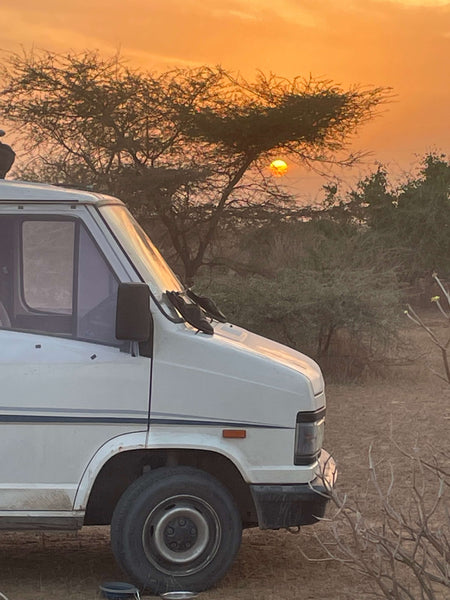Part 5: Mauritania
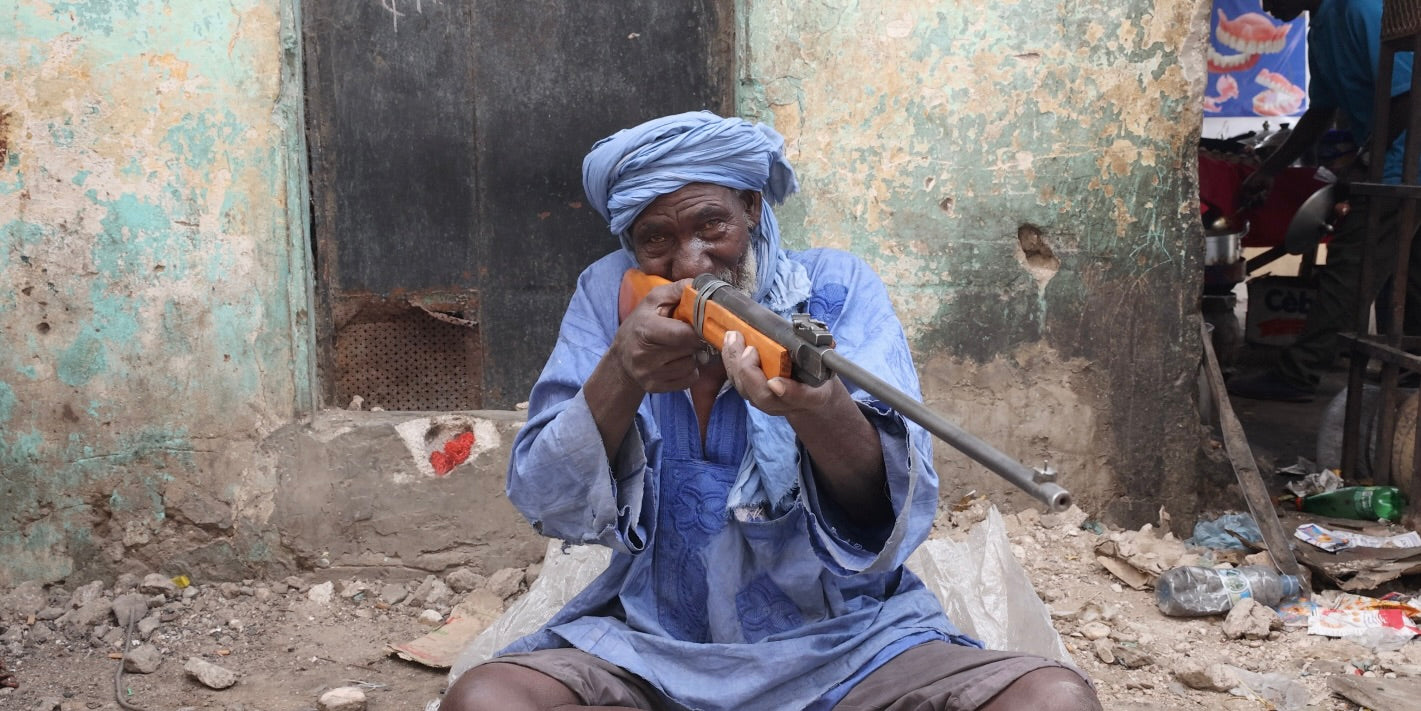
Last fill-up before Mauritania, the pump attendant warns us that there is not much chance of finding petrol before Nouakchott, about 500km. It's going to be tricky, but we make the attempt with a small jerry can on the roof. After an 8-hour wait at the Guerguerat border post (Morocco), we set off on the 4-kilometre track of No Man's Land. We arrive at the Mauritanian border post. It's getting late and the customs officers are waiting for us to close. The crossing took no more than an hour.
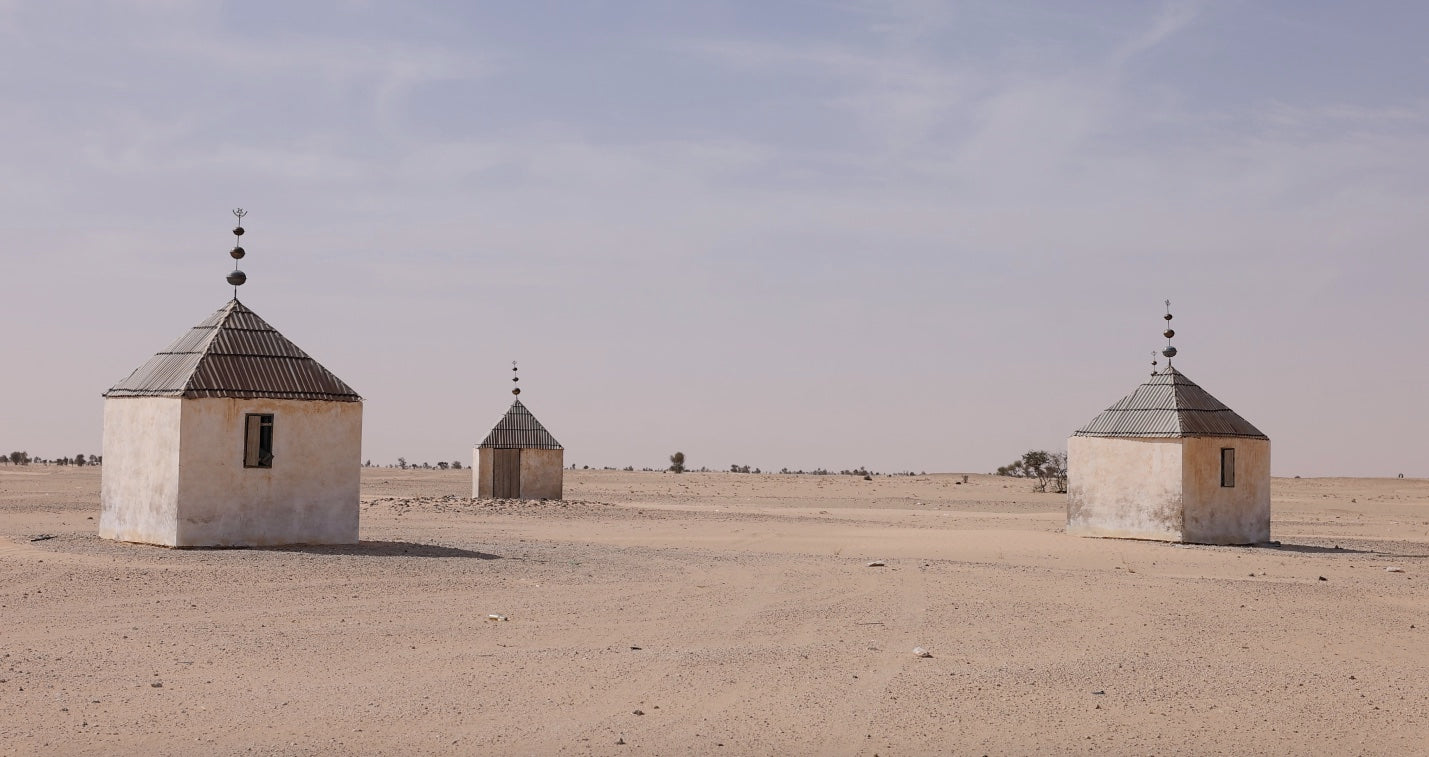
We finally arrived in Mauritania. The landscapes are different. Sand dunes as far as the eye can see. Gradually the vegetation begins to reappear. The roads, due to the heat, are in a pitiful state. There are holes and bumps everywhere; it's a real course where we have to be vigilant at every meter.
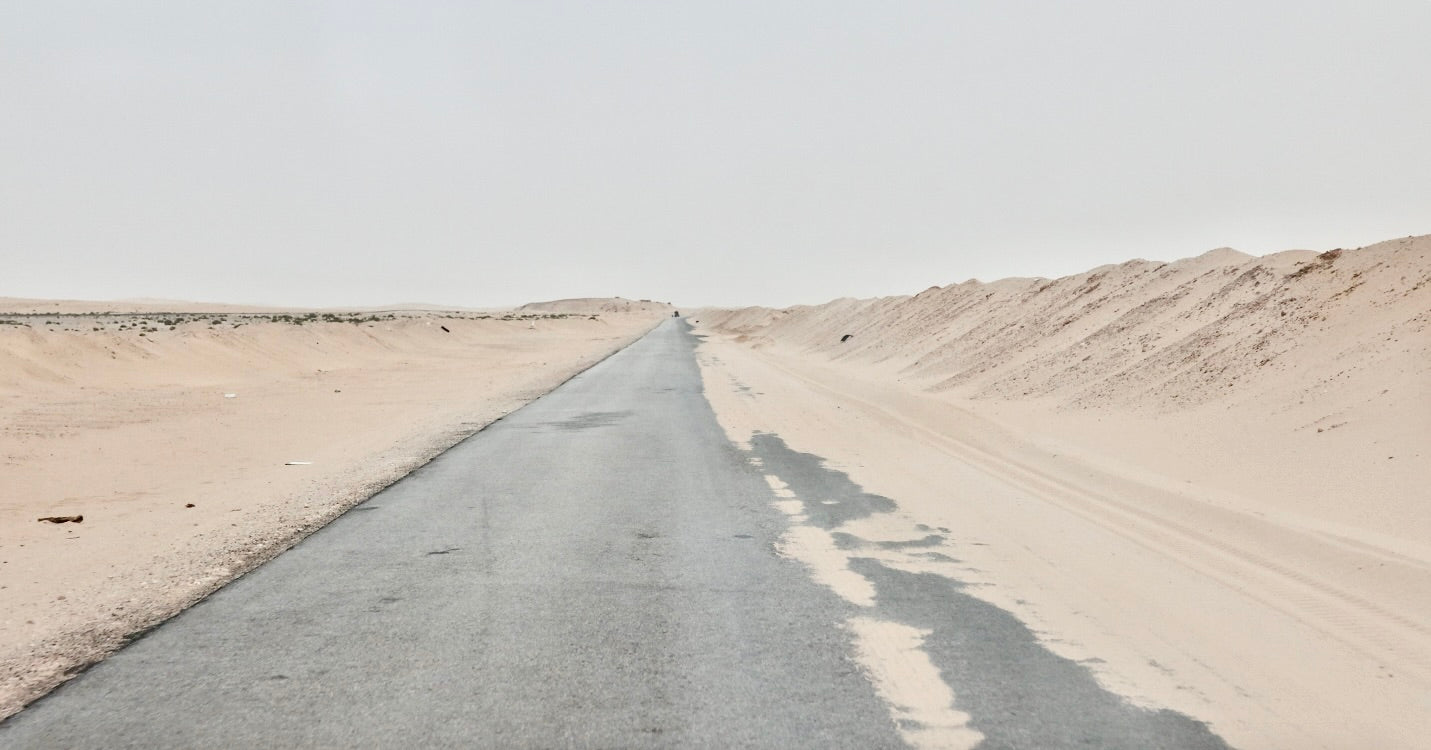
We're driving between sand dunes, so it's impossible to get off the road at the moment. However, we need to find a remote place to sleep. Luckily, we found a fairly hard sand track, which led us to sleep at the foot of the dunes. It was a magnificent first place to sleep.
We set off again the next day in the direction of Nouakchott. We passed very few villages. We have no internet or telephone to find tracks. What's more, petrol stations are scarce, and we have to wait for the big towns to find petrol.
After several hours on the road in the heat, we decided to take a track to a beach to find some waves.
There were a few small waves, and Paco took the opportunity to get out his longboard.
The beach is deserted. Foster is free and happy to run around.
The place is so stunning that we decide to stay for two days.
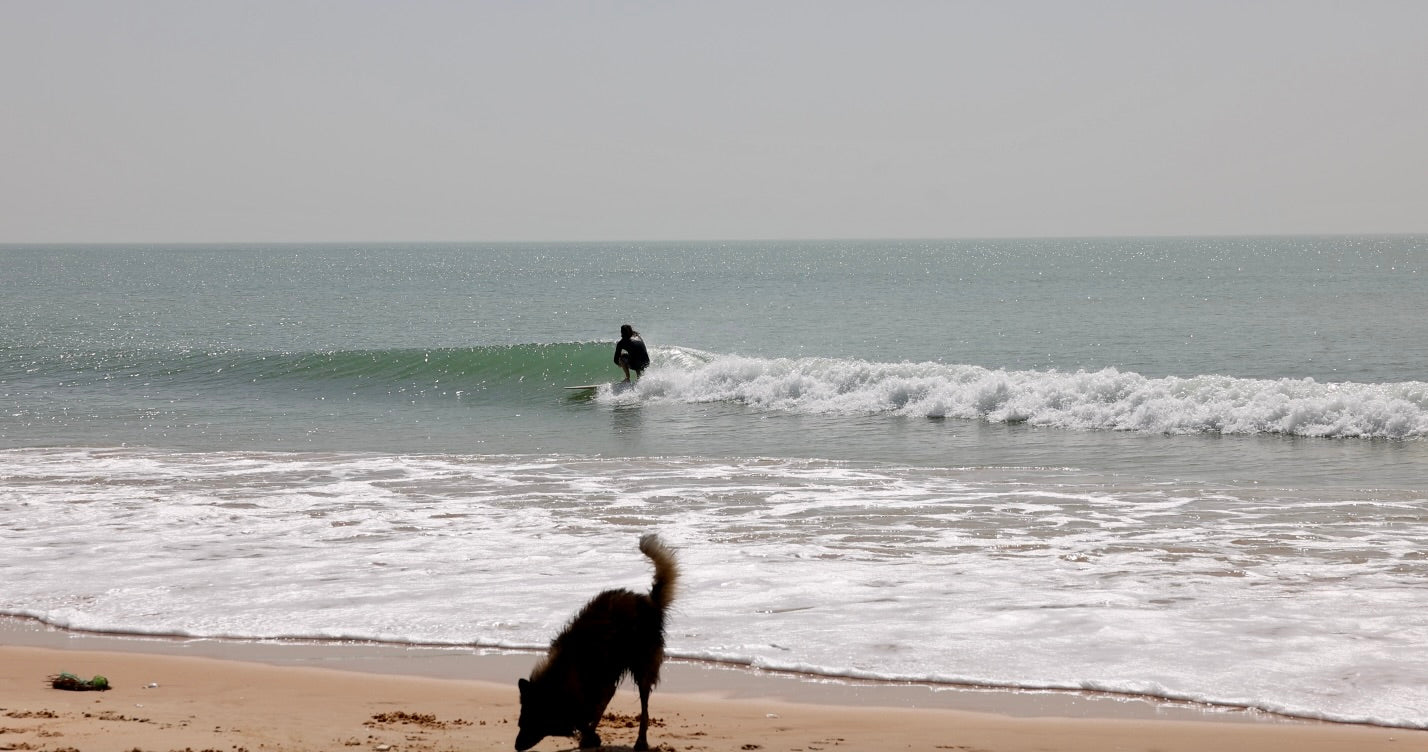
Back on the road to Nouakchott, the capital of Mauritania. As with any large city, getting around is complicated. To visit the city, we decide to take a small campsite in the shade. We met a number of people who were making the trip by bike, which was a brave thing to do given the heat and the road.
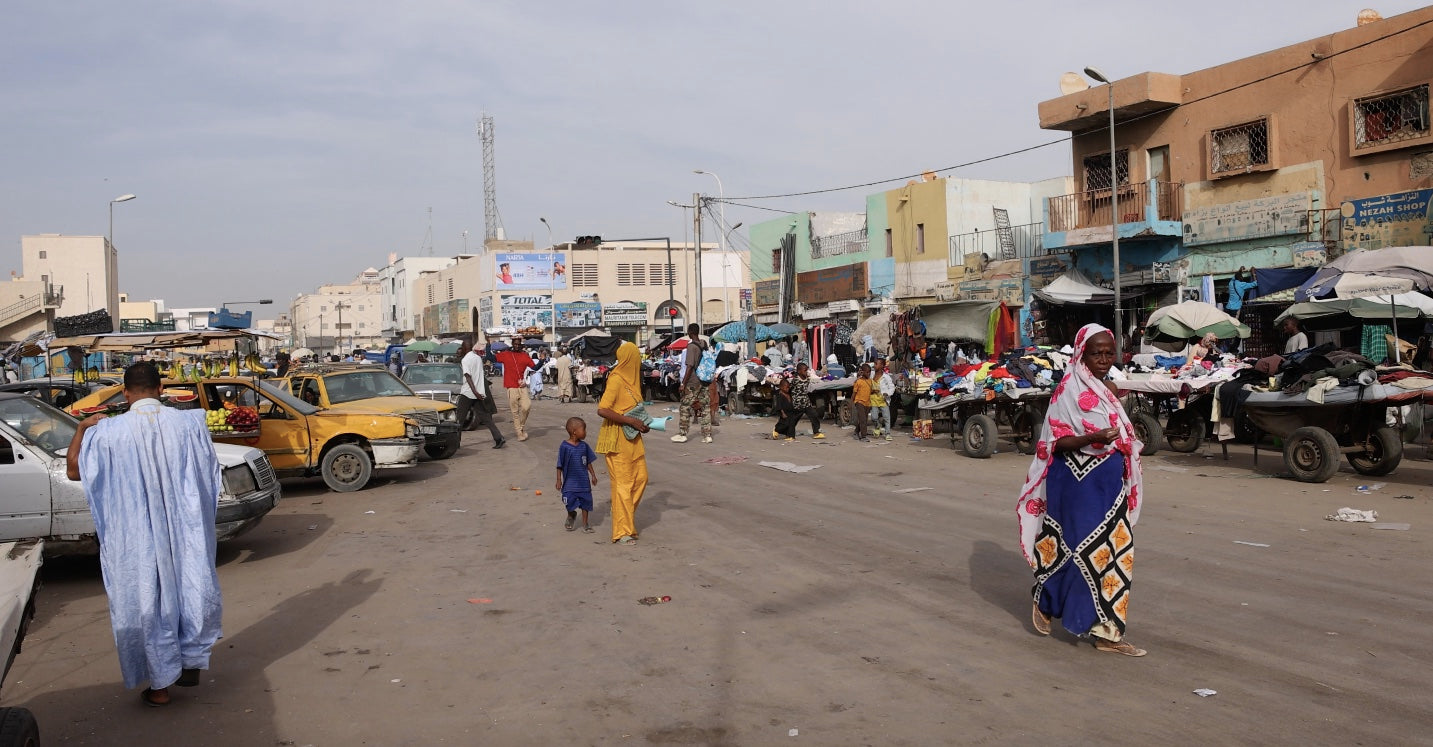
We had a complicated night, infested with mosquitoes and noise. With the bad track that we made, a noise appeared at the level of the wheel. We suspected a bearing. A mechanic came straight to the campsite to check it out, which is an advantage in these countries. In the end, nothing was damaged.
We head for the Diama border. We've made enquiries and the border at Rosso is very corrupt. Despite a very rough track that is almost impossible to ride on during the rainy season, we pass through the Diawling national park.
We stop for the night to cross the border as early as possible the next day. We sleep surrounded by animals.
This is the start of a long 40km track. New signs appear on the road: "watch out for warthogs ». We hope to see some, and a few minutes later, on the side of the road, a couple of warthogs are wandering around. Very happy and excited to have seen Pumbaa ( cf The Lion King).
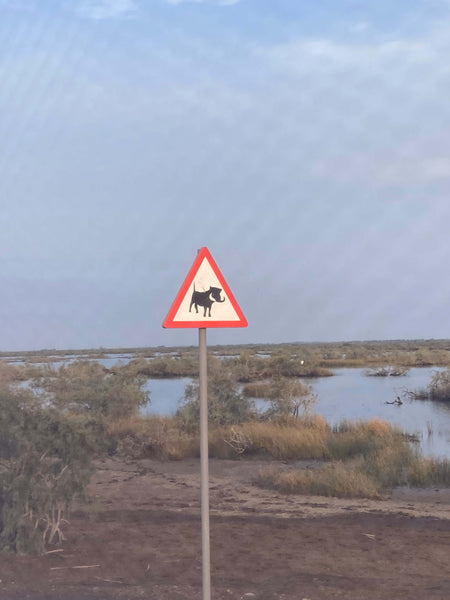
The further we drove, the more we realised that these animals are not rare; we came across them everywhere. We were even lucky enough to see some babies.
All around us, dozens of different bird species, each more beautiful than the last (cormorants, pelicans, herons, grey cranes, etc.).
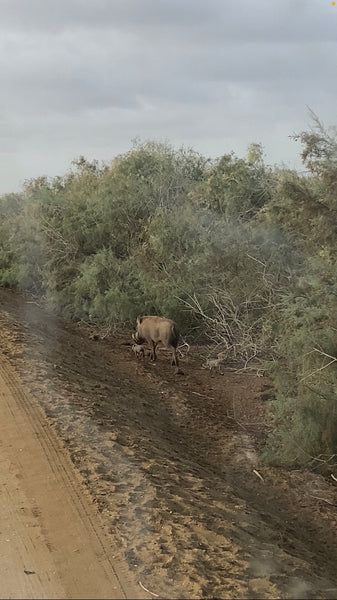
We're halfway down the track, so we take a short break to film some more warthogs. And then a big problem: the gear lever is limp and it's impossible to shift or change gear. Luckily for us, we realised that the gearbox was stuck in second gear, so we were able to walk a few metres to join some people on foot a little further on, near a tiny village. After explaining the problem to them, they contacted a garage owner living in a village further away. After an hour, he arrived with some tools in a cloth.
After inspection, it was a gearbox nut that had fallen off as a result of the vibrations created by the track. The repair didn't take long, but he did charge us an exorbitant price. Paco was able to negotiate as best he could. We came out of it for €125, a big chunk of the budget for the border crossing... it's going to be complicated.
Last stop for the night. The next day, we finish the track and head for the border post. No trouble at all, the exit from Mauritania went very quickly.
We then go to the border post on the Senegal side.
Not many people there. No problem with the visas, but we do need a passavant for the vehicle. Given that it's over 8 years old and that we didn't want to obtain an ATA carnet, we have to pay an authorisation fee of €250. Knowing that it's Saturday, the delay has been extended. But 3 hours later, someone brings us the papers in person and what luck, we can pay him in Saint-Louis, as soon as we have withdrawn the money.
